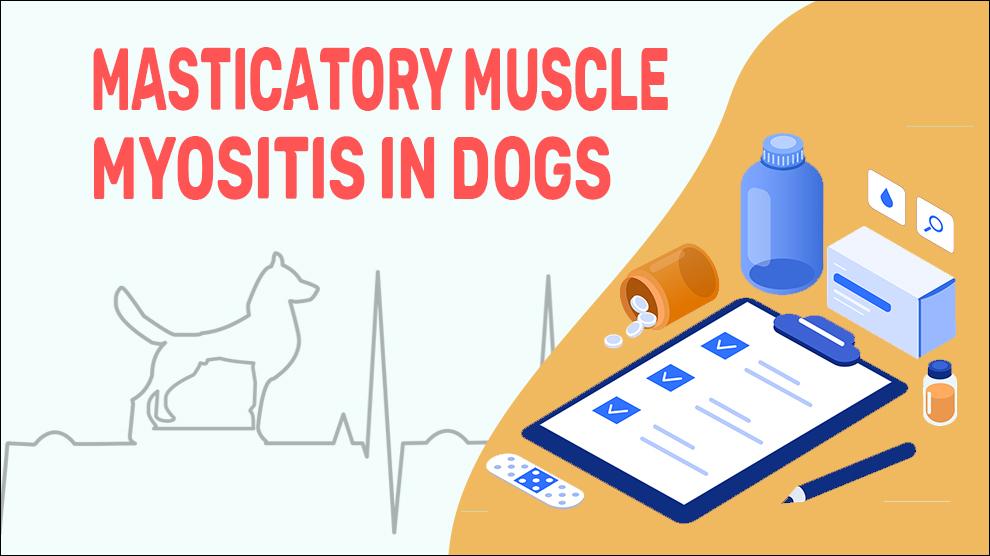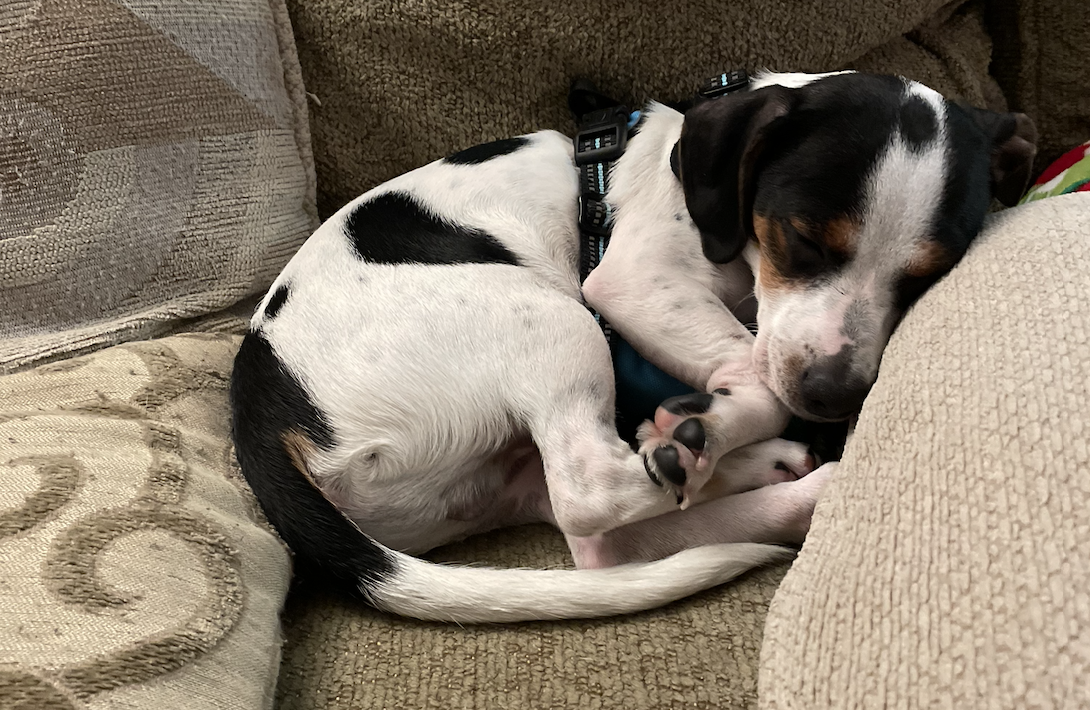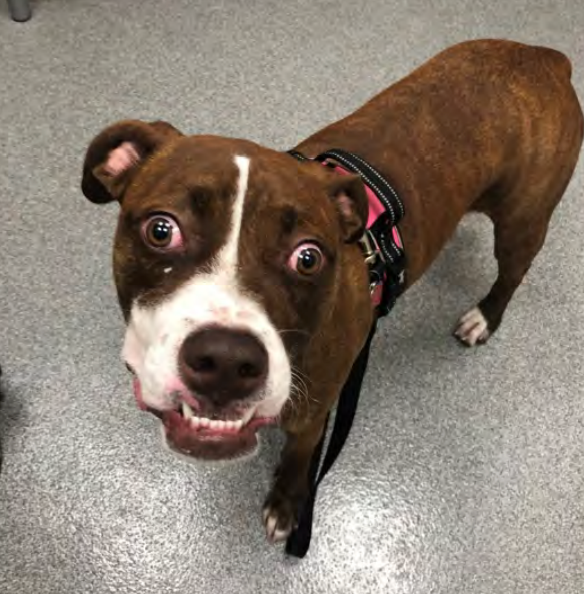
What Causes Masticatory Muscle Myositis In Dogs
MASTICATORY muscle myositis (MMM) is a common idiopathic inflammatory myopathy in the dog. It is characterised by a focal inflammation of the masticatory muscles digastricus, pterygoid, temporalis, and masseteric. The masticatory muscles are composed of a specific type of myofibres, namely type 2M myofibres.

Skinny Dog with Masticatory Muscle Myositis Lives Her Best Life Rocky
What is Masticatory Muscle Myositis in Dogs? Masticatory Muscle Myositis is an autoimmune disease or process where the immune system targets the masticatory muscle (a large muscle in the jaw). Dogs suffering from this disease will often present in the clinic with jaw pain, lack of eating, or a complete inability to even open their jaw!

Swollen Jaws in Dogs with Difficulty Chewing may be MMM • Dogdogs
Masticatory myositis is an immune-mediated, inflammatory condition that affects the muscles of mastication. The exact cause is unknown. Specific autoantibodies directed against type II muscle fibers have been detected in affected animals. In acute cases, muscles are swollen, and there is difficulty in opening the jaw.

Masticatory Muscle Myositis (MMM) Support Prescription Pack Greenpet
What is Myositis? Literally, Myositis means muscle (myo-) inflammation (-sitis). This type of muscle disease (myopathy) represents a group of different diseases which all share the feature of inflammatory cells within the muscle. Myositis in dogs can affect: Just one muscle

Masticatory Myositis In Dogs Kingsdale Animal Hospital
In the late 1990's my dog, Ivan, a 14 year old Siberian Husky, was plagued with masticatory muscle myositis (MMM)— a disorder that led to the atrophy of the muscles in his head and neck. At that point, things were okay, but we were told to be prepared for him to experience lock-jaw, which would lead to the inability to eat.

What to do when playing with your dog if they have masticatory muscle
Although MMM can occur in any breed, it occurs more commonly in large breeds, such as Golden Retrievers, Doberman Pinschers, German Shepherd Dogs, and Labrador Retrievers. Young Cavalier King Charles Spaniels may be severely affected and are believed to be genetically predisposed to developing MMM.

MMM in dogs Pet Forums Community Dogs, Toxic foods for dogs, Toxic
Masticatory muscle myositis (MMM) is the second most frequently diagnosed inflammatory myopathy in dogs. 1 The term masticatory myositis is an acceptable alternative. It is characterized by inflammation, necrosis, and atrophy of masticatory muscles, including the temporal, masseter, and pterygoid muscles but not the digastricus muscle.

Masticatory Muscle Myositis Progam
This is a dog with the chronic form of MMM. Note the severe muscle wasting of the temporalis muscle. The diagnosis is based on clinical signs listed above and ruling out other differentials for pain on opening the mouth (retrobulbar abscess or mass, dental disease and abnormalities of the temporomandibular joint).

Masticatory muscle myositis NeuroPetVet
Masticatory muscle myositis (MMM) is an inflammatory condition involving the muscles of mastication or chewing in the dog. MMM is caused by an immune-mediated process targeted against specific muscle fibers; the immune system attacks the body's own muscles.

What is MMM in Dogs? How My Dog is Masticatory Muscle Myositis
A dog suspected to have MMM will not be able to have its jaw opened even under anesthesia, and your veterinarian will recommend further testing. There is a specific blood test that defines circulating autoantibodies to the 2M fibers. It is called a 2M antibody ELISA assay and it can help diagnose masticatory muscle myositis.

Waiting on test results to determine if this sweet perfect pup has
Masticatory muscle myositis (MMM) is an immune system disorder in which the dog's immune system identifies the dog's own muscle tissue as foreign and attacks it. The masticatory muscles are the muscles involved with chewing. MMM causes these muscles to become swollen and painful. Dogs with MMM cannot open their mouths without excruciating pain.

Is Mmm In Dogs Hereditary
Masticatory muscle myositis (MMM) is an inflammatory disease in dogs affecting the muscles of mastication (chewing). It is also known as atrophic myositis or eosinophilic myositis. MMM is the most common inflammatory myopathy in dogs. [1] The disease mainly affects large breed dogs. [2]

Jasper and his Masticatory Muscle Myositis McDowell's Herbal Treatments
Masticatory muscle myositis is known to be a unique type inflammatory myopathy. It is an autoimmune disorder that negatively impacts a dog's jaw muscle because their antibodies target these specific muscles.

Is Mmm In Dogs Hereditary
Ditto had MMM, Masticatory Muscle myositis, and autoimmune disease where the body destroys the unique 2m muscle fibers dogs have in their and around their jaws. All scientific articles indicated an immediate start of a strong cortisone treatment, which is gradually tapered off.

What Causes Masticatory Muscle Myositis In Dogs
MMM in dogs, also known as Masticatory muscle myositis is an extremely frustrating condition for your pet, as well as a very serious threat. It can cause your dogs head muscles to shrink as well as causing excessive salivation. But that is only the minor problems it causes.

[Help] Has anyone run into (MMM) or Masticatory Muscle Myositis ? dogs
Upon diagnosis of MMM, all dogs were prescribed immunosuppressive doses of oral prednisone (at least 1 mg/kg per 12 hours) for a mean of 3.5 weeks. Based on clinical signs, medication side effects, and repeat 2M fiber antibody titers, the initial prednisone dose was tapered by 25% to 50% every 2 to 8 weeks.